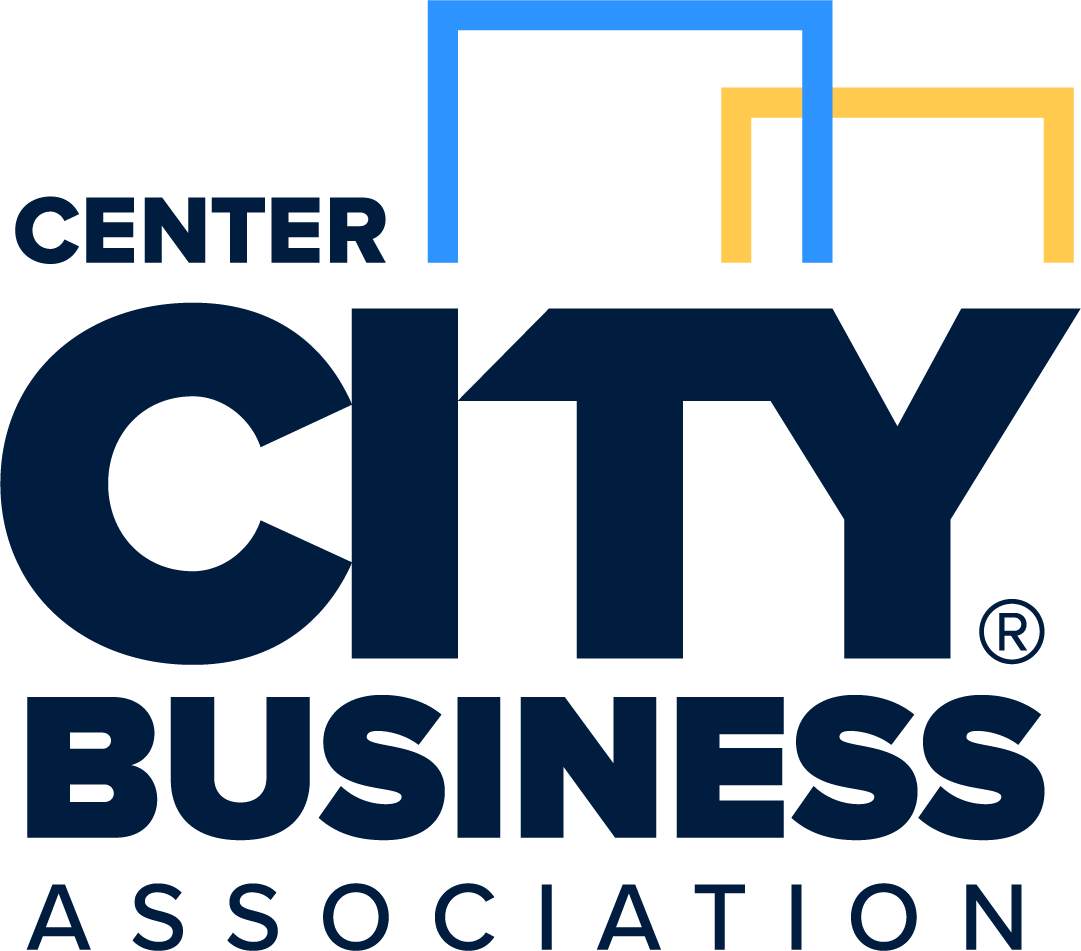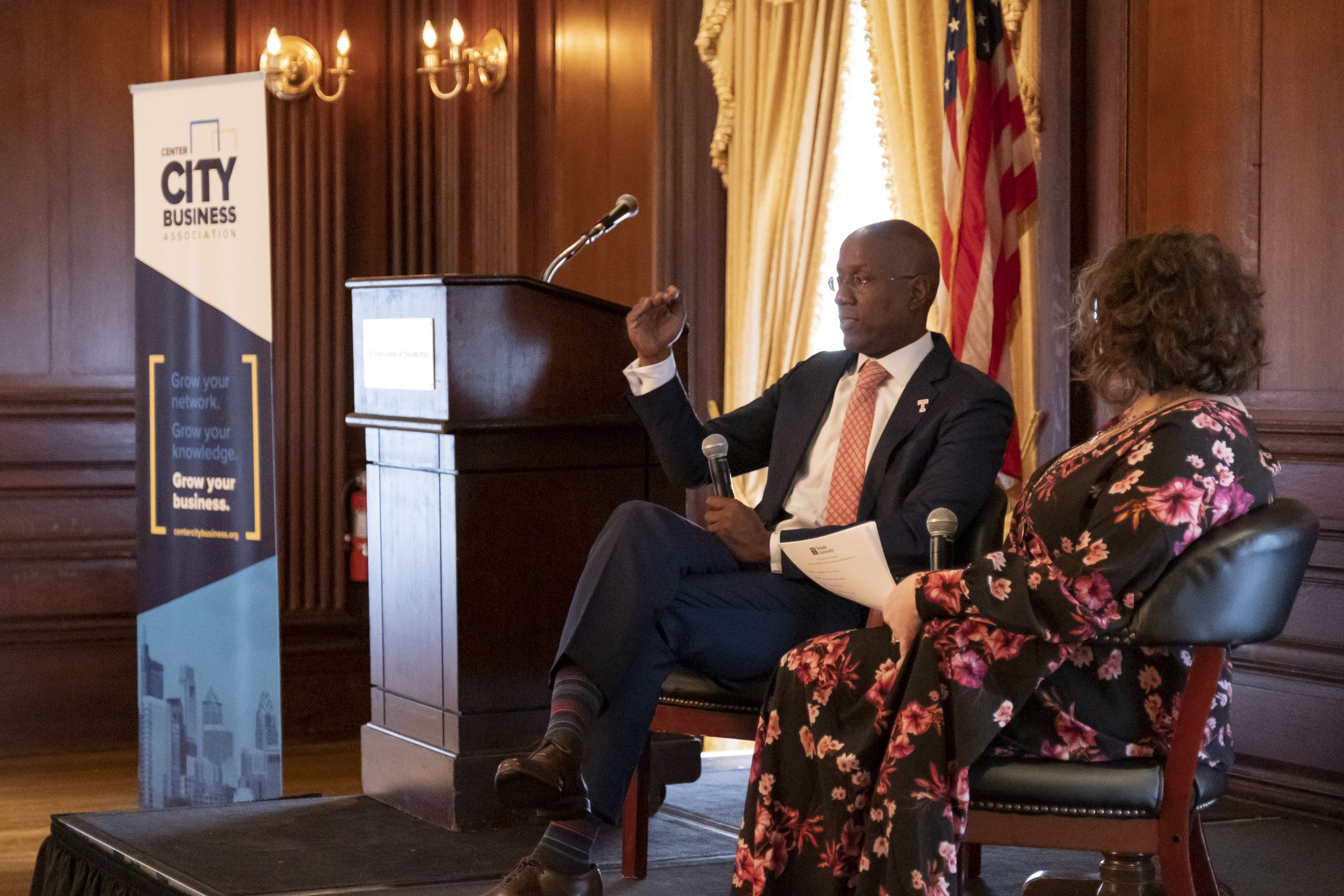RECAP: LUNCH WITH THE CITY’S LEADERS, FEATURING DR. JASON WINGARD, PRESIDENT OF TEMPLE UNIVERSITY
/Photo Credit: Joseph Labolito photographer for Temple.
Lunch. A real lunch. Not a virtual lunch, and not a Zoom lunch. Oh, it feels great to be back - in Center City. With members and guests and smiling faces. And laughter. For the first time in over two years, we were thrilled to host our Lunch with the City’s Leaders event at the Union League of Philadelphia on April 20, 2022. The event featured Dr. Jason Wingard, President of Temple University, and a leading authority specializing in the areas of organizational strategy, leadership development, and the future of work. Interviewing Dr. Wingard was Maura Shenker, director of Temple University’s Small Business Development Center (SBDC).
Dr. Wingard shared his insights on what we do know – and what we don’t know – about the current educational landscape as well as the nature and needs of our area’s future workforce. Here are six key areas that Dr. Wingard thinks colleges, businesses and students should pay attention to
Broad Competencies
“We do not know, for the first time, what jobs will look like in the coming years,” Dr. Wingard explained. Students are being asked to make a significant investment in education where its value is unsure. Anticipating the skills needed for jobs five to ten years from now is a lot like peering into a crystal ball. “And we can’t align around what we don’t know,” he added.
For that reason, Wingard notes the value of emphasizing soft skills, like context skills and interpersonal communications, along with trending technical knowledge such as machine learning and artificial intelligence, as they can better prepare students regardless of what work they pursue after graduation.
Broad Engagement
Within academic institutions, educators must listen to what skills students are saying they need, as well as listen to what businesses are saying their future employees need. Engaging with the local communities and cultivating partnerships with corporations, small businesses, and interested alumni helps to ensure good matches between what skillsets are needed and what universities are offering students.
The Gap in Internship Accessibility
Dr. Wingard also spoke of the growing trend of unpaid internships and its disparate impact on lower income students. Paid internships were common in the past. Today, many are unpaid. This can create problems for students who don’t have parents or resources to support them as they gain important experiential knowledge through these work programs.
At Temple, students are paid by the university for their unpaid internships - upholding Temple’s commitment and mission to ensure that all students have access to the best opportunities in their educational journeys. From a business perspective, Dr. Wingard urged businesses to “live your values by paying your interns and providing them with amazing experiences.”
The Digital Divide
Not all students who come to college have had ready access to resources like computers, Wi-Fi, or other forms of technology. Those without these resources may be left behind as they enter the world of remote learning and remote work. To combat this, Temple partners with local K-12 schools to help ensure that students are equipped with these tools prior to even attending Temple so that they don’t find themselves behind other classmates right out of the block particularly in this ever-growing digitalized world.
Alternate Routes to Seeking Skills
Dr. Wingard described the trend of businesses and corporations investing in their training programs more expansively and investing in employees who otherwise wouldn’t have the skills necessary for a job even with a degree in higher education. In a way, this trend puts higher education in jeopardy. Parents and students increasingly wonder if a college degree is valuable or worth the money. The answer? According to Dr. Wingard, it’s valuable, but not as valuable as it has been. Students know that companies are hiring to train, and so are bypassing the college route and opting for employment that offers extensive on-the-job training or are learning through alternative providers, such as Noodle, Masterclass, and LinkedIn Learning.
The “Gig Economy”
Employers who do not have the time, money, or interest in extensive employee training are filling their roles with contractors who are already experienced and have been trained by alternative credentialing. As a result, degrees in some sectors appear increasingly less valuable or relevant.
Don’t Miss the Next One!
Sign up today for our next upcoming Lunch with the City’s Leaders event featuring Nick Bayer, CEO and Founder of Saxbys on Wednesday, May 25, 2022 from 11:45 AM to 1:30 PM. You can register for this event or any of our other events here.
Thank You Members and Sponsors!
Thank you to those who could attend our “Lunch with the City’s Leaders'' event, and thank you to our community, for all that you do to make Philadelphia's Center City the best place to do business. Additionally, we thank the generous sponsors of our Lunch with the City’s Leaders series, including Citizens Bank, Comcast Business, Community College of Philadelphia, Friedman LLP, KYW, LevLane, PECO, Post Brothers, and Visit Philadelphia.


